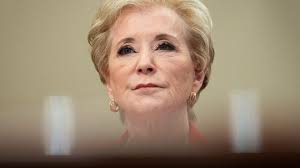The United States Department of Education has recently finalized new rules regarding the Public Service Loan Forgiveness cPSLFc program, a key student debt relief initiative. The program was designed to assist individuals in specialized fields, such as nursing, firefighting, teaching, and certain nonprofit work, in having their student debt forgiven after 10 years of timely payments. The implementation of these new rules, expected to be effective from July 2026, could potentially prevent certain businesses and organizations engaging in activities with a "substantial illegal purpose" from qualifying for debt forgiveness under the program.
Former President Joe Biden had previously reformed the PSLF program, resulting in billions of dollars in debt forgiveness for over 1 million Americans. However, President Donald Trump's administration is now seeking to limit eligibility by barring employers associated with illegal activities. The exact definition of what constitutes "illegal" activity remains ambiguous, with potential examples mentioned in the regulations including supporting undocumented immigrants, gender-affirming care for minors, aiding terrorism, and illegal discrimination.
Advocates for student loan borrowers have strongly criticized the new rules as an overreach and have vowed to challenge them legally. The regulations provide an appeals process for employers to contest the Education Department's determination of law violations and offer avenues for organizations to regain eligibility by fulfilling a corrective action plan. Despite the opposition, the rules are slated to come into effect in 2026, leading to concerns about the potential impact on public servants dedicated to fields like healthcare, education, and social services.
The Education Department's assertion that the program should not support organizations violating the law has sparked debate and concern among various advocacy groups. Critics argue that the rules could be politicized to target left-leaning and liberal organizations, especially those working on immigration advocacy and transgender rights. The issue has further highlighted the divide between the current administration's policies and the values upheld by those working in public service professions.
Organizations have expressed apprehension over the broad discretion granted to the education secretary in determining which employers would be ineligible for the PSLF program. The National Council of Nonprofits and other associations have raised concerns about the potential for future administrations to alter eligibility criteria based on ideological agendas, emphasizing the need for transparency and fairness in the implementation of student loan forgiveness programs.
In conclusion, the finalized rules for the Public Service Loan Forgiveness program have stirred controversy and raised questions about the intersection of public policy, legal compliance, and support for essential public service workers. As the debate over student debt relief continues, stakeholders will closely monitor the implications of these regulations on individuals dedicated to serving their communities through public service professions.

